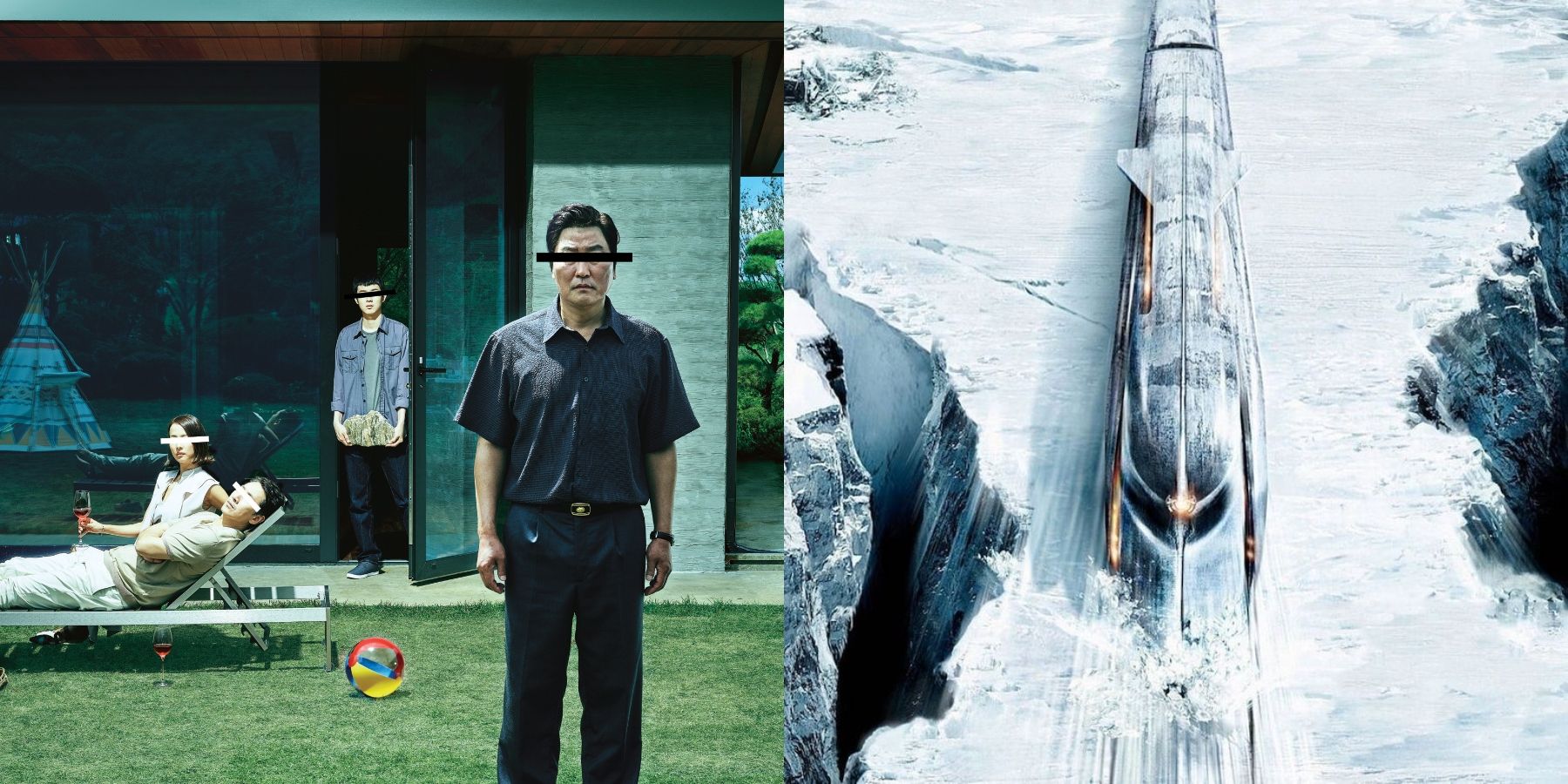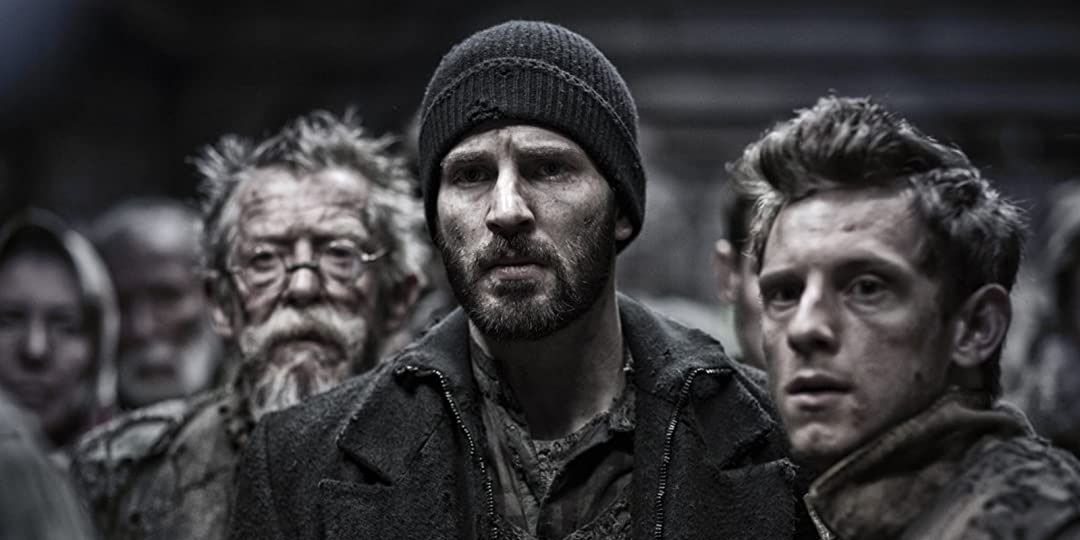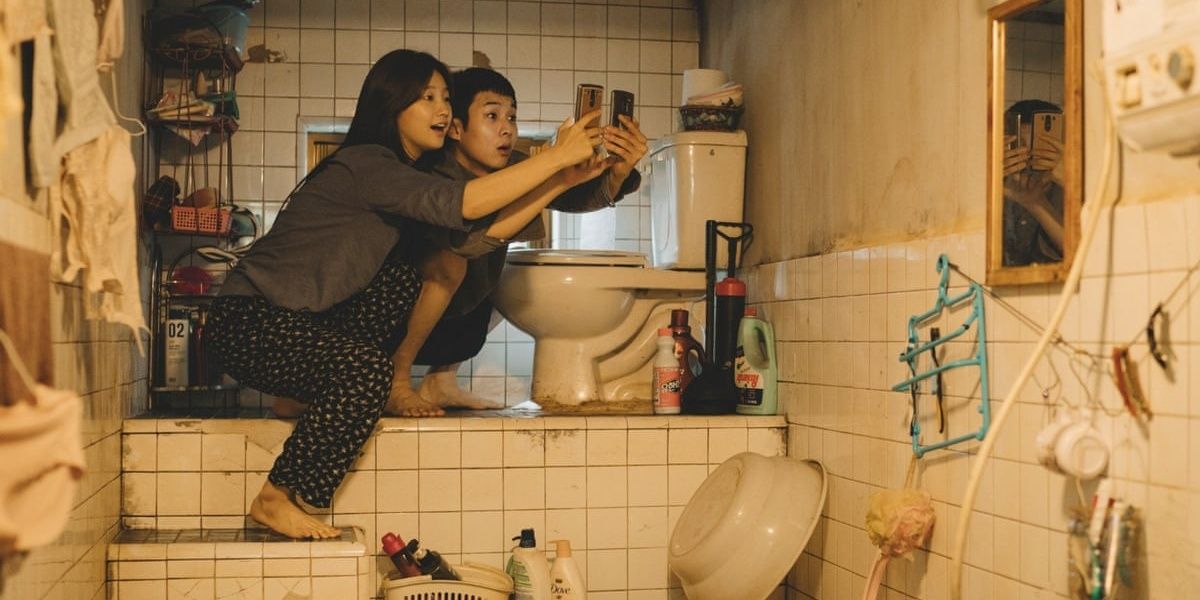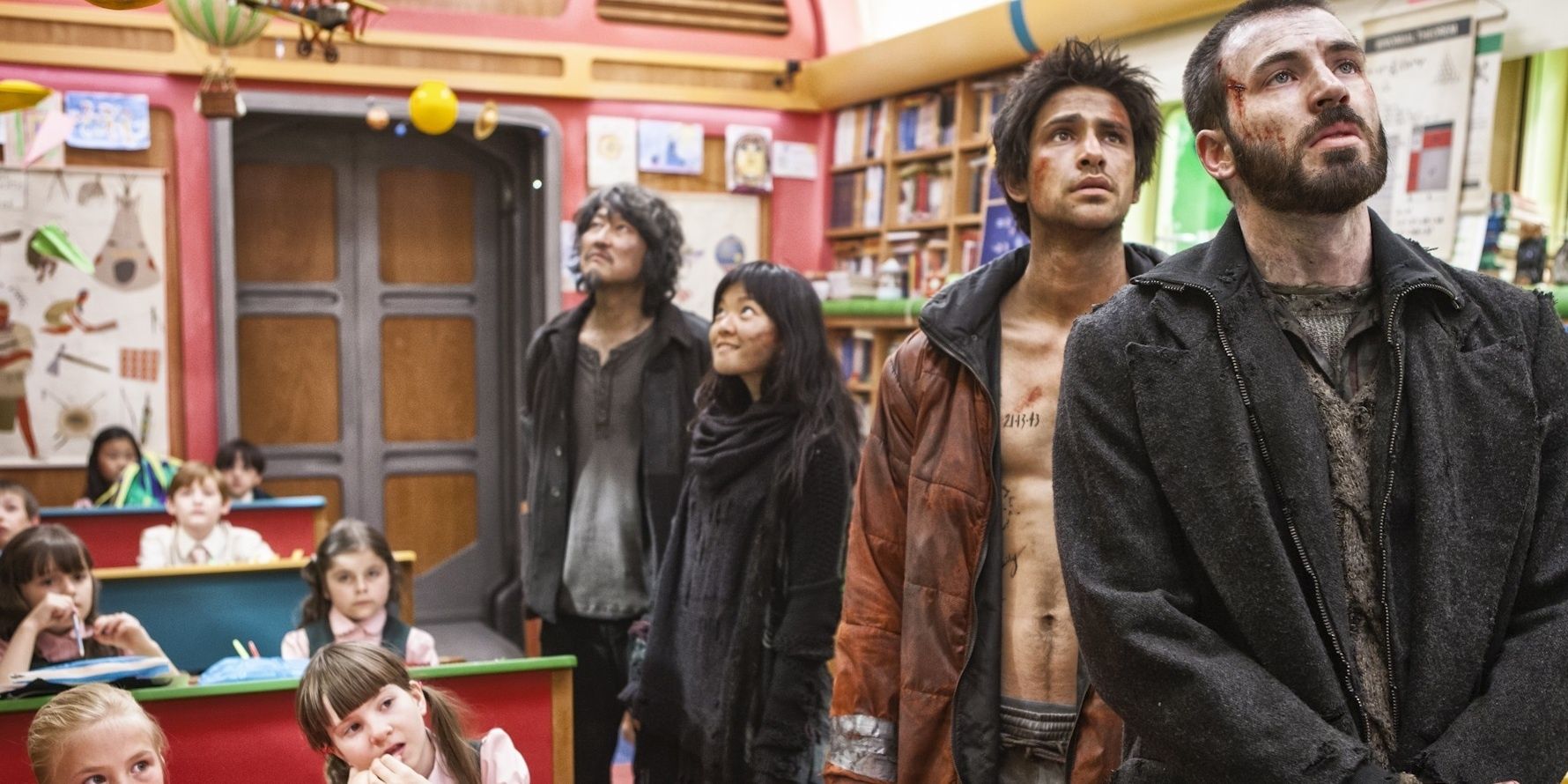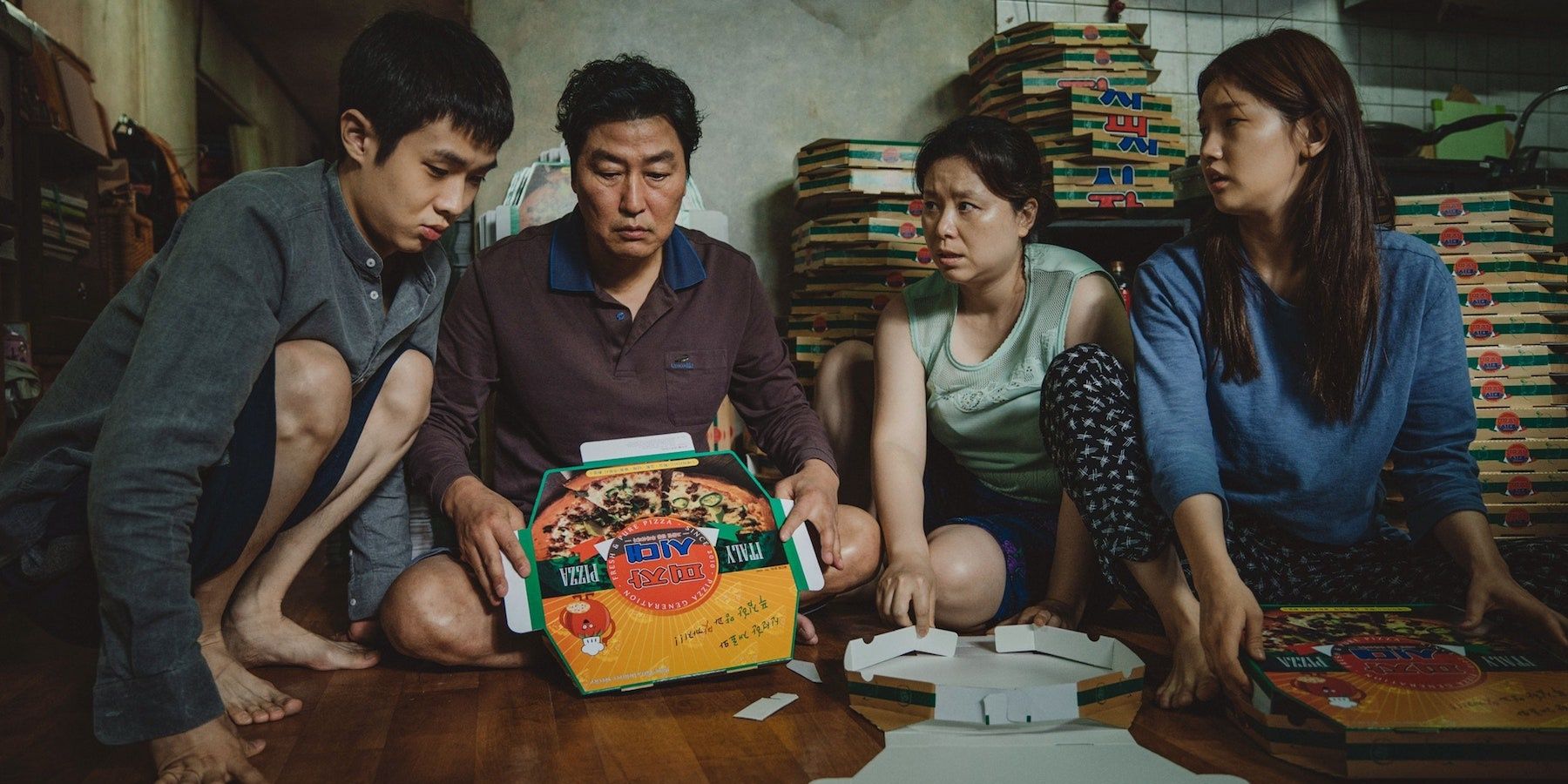Bong Joon-ho has risen to a new form of fame over recent years. At the 2020 Academy Awards, Joon-ho's Parasite took home four Academy Awards, including Best Picture. His productions are known for making a statement and often use the same themes to do so. While Parasite has gained well-deserved notoriety (especially after premiering on Hulu), it mirrors a Joon-ho film that debuted in 2013.
Snowpiercer, like Parasite, deals with the class system. The harsh relationship between the rich and the poor is a known theme that is explored in Joon-ho's films. For Snowpiercer and Parasite, the two films do not only share common issues, but reflect the moral dilemmas proposed by each film.
While Snowpiercer and Parasite deal with class, they do so in extremely different environments. Set during an apocalyptic, end of the world scenario, Snowpiercer places the survivors on a train. The train, (also named Snowpiercer) is believed to be equipped with everything they need to survive and the passengers are taught that if the engine were to stop, they'd all die.
At the tail-end of the train are the poor. Crammed into one train car, the tail-enders have planned a revolt to take control of the front end, where all the rich reside. After Tanya's (played by Octavia Spencer) boy is taken by front-end attendants, the tail-enders realize the time to act is now. The film follows Curtis (played by Chris Evans) and a few of his fellow tail-enders on their journey toward the front of the train.
This do-or-die scenario runs parallel to the Kim family of Parasite. From the start of the film, it is clear that the Kim family is not well off. They cram into a small spot in their bathroom in order to gain internet access from neighbors, fold fast food boxes to make money, and leave their windows open to get free extermination. The placement of the Kim home is strategic on Joon-ho's end, as it physically demonstrates their place in society.
So, both Parasite and Snowpiercer demonstrate the class standing of their main characters by placing them at the bottom of the totem pole. Aboard Snowpiercer, the poor passengers are pushed to the back of the train. In Parasite, the Kims are practically living underground.
Despite featuring main characters that are poor, Snowpiercer and Parasite do show the rich as well. Snowpiercer exposes them for their lavish way of living that takes up multiple train cars despite the tail-enders struggle to coexist in one train car. Like Snowpiercer, Parasite exposes the rich's ridiculous obliviousness to others. When the Park family is being infiltrated by the Kims, they are too blind to see the scheme being pulled before their very eyes.
Infiltration is a huge part of both Joon-ho films. Parasite has the Kim family infiltrate the insanely wealthy Parks. After all, this is how Parasite earns its name. As the name of the train that burrows around the world, Snowpiercer quite literally pierces the snowy earth, but also features the tail-enders invading the front of the train.
Over Snowpiercer and Parasite, Joon-ho uses infiltration to spur an interesting moral dilemma across the two films. Emphasizing the polar opposites of the rich and the poor, each film deals with the moral repercussions that come along with the decisions being made by both the rich and poor. When compared, these films mirror the moral issues one another face in a complex way.
Aboard Snowpiercer, the tail-enders are only fed dark, gelatin protein bars. On their journey to the front, Curtis and the others discover that the bars are actually made of insects that have been ground up. This becomes more infuriating once they see the fresh assortment of food (including sushi) that the rich have access to.
Leading the tail-enders' tirade to the front, Curtis experiences a number of surprises and losses along the way. Despite losing a number of his friends and having a few shocking discoveries, the morality of the tail-enders gets stronger. They remain faithful to their mission, and when presented with the opportunity to become the worshipped leader of the train, Curtis refuses.
Parasite takes the theme of morality to new heights. The Parks live an incredibly naive life and are afraid of many things. The Kims are hard-working people who know what it's like to be met with insufficient wages and harsh circumstances. At the start of the film, that's exactly what they seem to be: a family trying to make a living. However, as Parasite continues their morality begins to crumble.
In order to infiltrate the Park family, the Kims sabotage many of the previously employed workers to take their places. Naturally, this forces many people out of their jobs when they've actually done nothing wrong. In doing so, the Kims discover that the previous housekeeper unknowingly housed her husband in the Park home. Rather than working together, or understanding what they've done, the Kims work to keep their charade going. Ultimately, this kills the housekeeper. This leads the Kims to face a number of additional problems, including what to do with the body and the husband, who later retaliates and kills the Kim's daughter. Her death is the final nail in the coffin of her father's morality, leading him to kill the wealthy Park father.
So while Snowpiercer and Parasite feature a group of people attempting to work their way up the social ladder, the effects that the journey has on their own morality work in opposition of one another. The poor, tail-end passengers of Snowpiercer increase their understanding of who they are and what they want life on the vessel to be like. They never lose sight of their goal. In Parasite, the Kim's morality deteriorates. In addition to taking advantage of the Parks' naive nature, they frame a number of people who were hard-workers like themselves, and cause the deaths of a few others.
Snowpiercer and Parasite may not work as direct mirrors of one another, but they both exhibit what the consequences are of the class system. Those consequences aren't linear and can take many forms. While what happens to the Kim family may seem extreme, and living on a train at the end of the world may seem insane, but unfortunately, the circumstances they live in are incredibly plausible in the current state of the world.
Stream Parasite on Hulu and Snowpiercer on Netflix.

